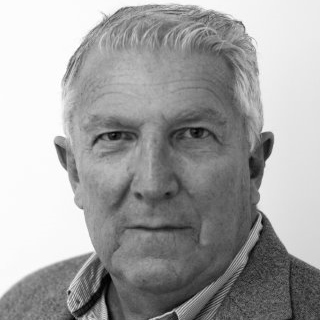News
Donen: The freedom fighters’ lawyer
Advocate Michael Donen SC was honoured in Parliament this month when the House congratulated him on the “remarkable effort he put into representing freedom fighters for many years (during the period from 1983 to 1990)”.

MOIRA SCHNEIDER
On the day, the Speaker acknowledged that Donen was in the House, he stood in the gallery and was applauded across party lines by all MPs.
“I feel very honoured and humbled,” says Donen, “because close to 30 years have gone by – at the time I did what I thought was my duty I did not expect any reward or recognition.”
It was DA MP Michael Bagraim, shadow minister of labour, who introduced a motion without notice proposing that the House congratulates Donen. It was accepted and passed in its entirety.
Donen’s work with freedom fighters was done at no small personal cost to himself. “The big Jewish legal firms blacklisted me and I got a message from the Afrikaans firms that they couldn’t support me because I was compromising them,” he recalls of those days.
“The work on which my practice had relied until then, was completely taken away.”
He started on this path while studying human rights in England in the early 1980s. “My tutor told me I should come back and fight the fight – do it, not just study it.
“And you mustn’t expect them to thank you for it or like you for it,” he had warned presciently.
Bagraim highlighted two individuals in Parliament who Donen had defended: Mxolisi Petane – in democratic South Africa he became the inspector-general of the South African National Defence Force – who had been charged with terrorism against the apartheid state and Michael Lucas.
With regard to Petane’s 1987 case, Donen explains that in this country, the law was used as an instrument of oppression, to stop resistance and to label people such as Petane as terrorists. However, international law held that he could be regarded as a prisoner of war.
“We used the court to further the aims of the liberation struggle politically,” he states.
“We drew to the attention of the court that there was another law to be applied. The difficulty the judge faced was that he was a judge of the apartheid regime and he had to apply apartheid law. So, he could never find in South African law that Petane was a prisoner of war.
“But he had to grapple with the question of whether he was a prisoner of war in terms of the Protocol to the Geneva Convention. This stated that people fighting in an armed conflict and exercising their right of self-determination against a racist regime, were entitled to be treated as prisoners of war.
“As soon as we raised that defence, the attention of the whole outside world was focused on this court. Diplomats came to court to observe and I was assisted by the acting prime minister of Australia, by Professor Kader Asmal of Trinity College, Dublin and international academics.
“The upshot was that when the judge tried to make out that the court, the government and the law of South Africa were legitimate, no one in the outside world believed him,” recalls Donen.
“As a result, it was a massive political victory for the ANC – showing that the government and the courts were illegitimate and the liberation movement was legitimate. In legal circles outside South Africa, it was accepted as a good defence and the case is still taught by the International Committee of the Red Cross in the Law of Armed Conflict.
Petane was able to avoid the death sentence and was sentenced to imprisonment on Robben Island. Lucas, however, was not as fortunate.
He was buried in a pauper’s grave and his remains were this year exhumed and brought to his home in Bongolethu, Oudtshoorn, for reburial, at which Donen spoke.
In other high profile cases, Donen defended Umkhonto we Sizwe members including Ashley Forbes and Tony Yengeni.
He has served seven terms as an acting judge and was appointed by former President Thabo Mbeki in 2007 to head the Donen Commission of enquiry into irregularities that had been committed by eight South African companies and individuals in Iraq’s Oil for Food programme.
Pat Jacobson
November 23, 2017 at 12:18 pm
‘Mazeltov to Michael Donen. You did wonderful work and you are an especially wonderful example to our Jewish community
You are role model for many.’